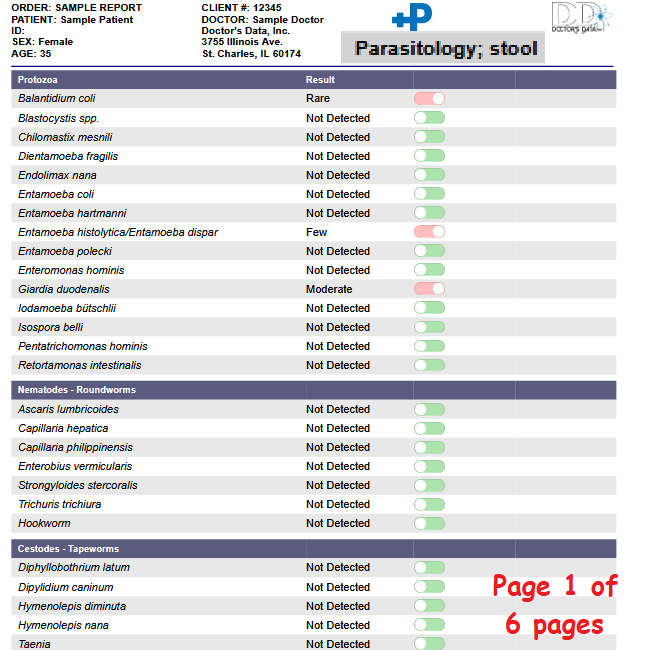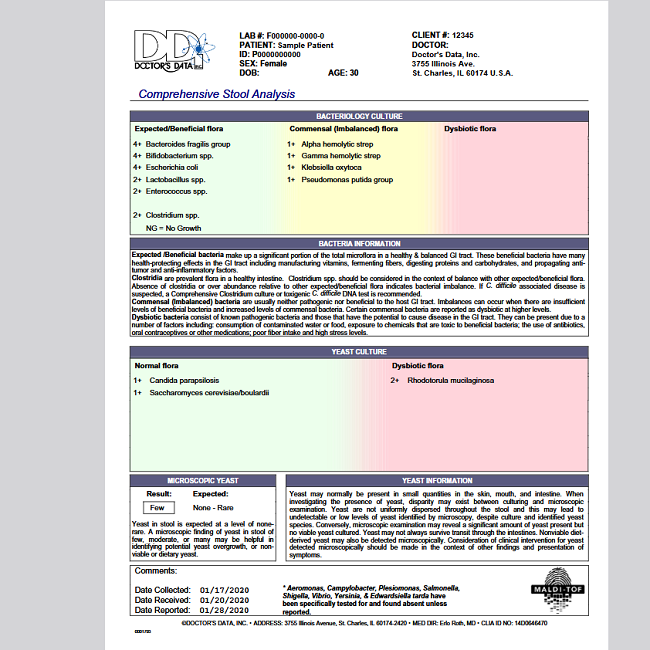
Table of Contents
Introduction to Parasites
Parasites are organisms that live on or inside another organism, known as the host, deriving nutrients at the host’s expense. They can range from tiny single-celled organisms to larger multicellular entities. Understanding these organisms is crucial not only for health reasons but also for improving our overall well-being. In this article, we will explore the different types, their impact on the human body, testing methods, dietary approaches to combat them, and the supplements that can aid in their elimination.
What Are These Organisms?
These organisms can be classified into several categories, but the main types affecting humans include protozoa, helminths (worms), and ectoparasites (like lice and ticks). Each of these categories encompasses various species that can cause a range of health issues. Protozoa are typically single-celled organisms that can cause diseases like malaria and giardiasis. Helminths are larger worms that can affect the intestines and other organs, leading to issues such as anemia and malnutrition. Ectoparasites live on the skin and can lead to irritation and secondary infections.
Understanding the characteristics and behaviors of these parasites is essential for prevention and treatment. They often have complex life cycles that may include multiple hosts and different developmental stages, which can complicate efforts to control their spread. Consequently, awareness and education around prevention methods are vital for public health.
The Importance of Addressing Them
Addressing these organisms is vital for maintaining good health. Many people are unaware of how common infections are, particularly in areas with poor sanitation or in immunocompromised individuals. These organisms can cause significant health issues, including chronic illness and severe nutrient deficiencies that can lead to larger systemic problems. Moreover, symptoms of infections can often be mistaken for other conditions, leading to misdiagnosis and ineffective treatment.
Moreover, beyond the individual health impact, infections can have broader societal implications, including increased healthcare costs, loss of productivity, and public health challenges. Hence, staying informed and proactive about prevention and treatment options is essential for both personal and community health.
Where Parasites Are Found in the Body
Common Locations of Parasites
These organisms can inhabit various parts of the human body, with the most common locations being the intestines, liver, bloodstream, and skin. Intestinal organisms, such as tapeworms and roundworms, primarily reside in the gastrointestinal tract and can disrupt nutrient absorption. Liver flukes and certain protozoa can inhabit the liver, causing inflammation and dysfunction. Bloodborne organisms, such as those causing malaria, circulate within the bloodstream, affecting red blood cells and leading to systemic symptoms.
Ectoparasites, like lice and mites, affect the skin and can cause irritation, itching, and secondary infections. Their presence often indicates a breakdown in hygiene or increased exposure to contaminated environments. Understanding where these parasites can live helps in preventing infestations and addressing symptoms effectively.
How Parasites Affect Different Organs
The impact of these organisms on different organs varies significantly. For instance, intestinal varieties can lead to gastrointestinal symptoms, including diarrhea, constipation, and abdominal pain. They can also result in malabsorption of essential nutrients, leading to malnutrition, anemia, and fatigue. Liver-dwelling organisms can cause liver damage, manifesting as jaundice and liver enlargement.
In the case of bloodborne organisms, symptoms can include fever, chills, and in severe cases, organ failure. Ectoparasites often lead to localized skin infections, allergic reactions, and secondary bacterial infections. Recognizing the potential organ-specific effects of these organisms can better equip individuals to seek timely medical intervention.
Symptoms Indicating Infestation
Common symptoms of infections can include unexplained weight loss, fatigue, gastrointestinal discomfort, and skin irritations. Some individuals may experience more severe symptoms, such as fever and breathing difficulties, especially when the organisms have spread beyond their initial location. A comprehensive understanding of these signs is crucial for early detection and treatment.
It is also essential to note that many infections can be asymptomatic in their early stages, which complicates timely diagnosis. This highlights the importance of regular health check-ups and being attentive to any unusual changes in one’s health.
Tests to Find Parasites
Types of Diagnostic Tests
Diagnosis of infections typically involves a combination of laboratory tests and clinical evaluation. Common tests include stool examinations to identify intestinal organisms, blood tests for detecting blood-borne infections, and imaging studies for those that may affect organs such as the liver or lungs. Each test serves a specific purpose, and often multiple tests may be necessary to confirm a diagnosis. The Parasitology stool profile from Doctors Data includes testing by PCR (Polymerase Chain Reaction) and microscopy. The end goal of PCR is to create millions or billions of copies of a specific DNA sequence. This amplification allows scientists to study a particular DNA region in more detail.
In cases where ectoparasites are suspected, visual inspection or skin scrapings may be employed to confirm the presence of lice, scabies, or other similar infestations. Understanding the various diagnostic approaches can help patients engage more effectively with their healthcare providers.
Understanding the Testing Process
The testing process usually begins with a detailed medical history by a healthcare provider. The patient may be asked about symptoms, travel history, and potential exposure to contaminated food, water, or environments. Based on this assessment, doctors may order specific tests tailored to the suspected type of infection.
Interpreting Test Results
Interpreting test results requires an understanding of normal ranges and potential indicators of infection. Positive results typically indicate the presence of parasites, while negative results can sometimes indicate the absence or low levels of parasitic infection. However, false negatives can occur, especially in cases of early or localized infections.
It is crucial to consult with healthcare professionals to interpret results accurately and plan appropriate treatment based on individual circumstances. Follow-up testing may sometimes be necessary to confirm treatment efficacy.
Supplements to Take
Beneficial Supplements for Control
Several supplements can be beneficial in combating these organisms and supporting overall health. Some of the most recognized include probiotics, which help restore gut health and balance beneficial bacteria that can be disrupted by these organisms. Herbal supplements such as black walnut hull, wormwood, and cloves have been traditionally used for their properties and may help cleanse the body.
Additionally, certain vitamins and minerals, such as zinc and vitamin C, can enhance immune function, making the body more resilient against infections. These supplements can play a pivotal role in both prevention and recovery from parasitic infestations.
Supplements can support the body in various ways beyond combating parasites. For instance, probiotics help restore gut flora balance, which is essential for digestion and nutrient absorption. They also strengthen the immune system, making it more effective at fighting off infections.
Herbal supplements may work by creating an inhospitable environment for parasites or by enhancing the body’s natural detoxification processes. Combining these supplements with a healthy diet can maximize their effectiveness and support overall well-being.
Recommended Dosages and Precautions
When considering supplements for parasite control, it is crucial to follow recommended dosages and consult with a healthcare provider. Overuse of certain supplements can lead to adverse effects or interfere with other medications. For example, excessive use of herbal remedies can cause gastrointestinal upset or allergic reactions in sensitive individuals.
It’s also important to select high-quality supplements from reputable sources to ensure purity and efficacy. A healthcare provider can provide personalized recommendations based on individual health needs and existing conditions, ensuring a safe approach to supplementation.
Foods to Take
Top Foods That Help Combat Infections
Diet plays a significant role in preventing and combating infections. Certain foods possess properties that can help keep the body healthy. Garlic and onion for instance, has been shown to have natural effects. Pumpkin seeds are another excellent choice, as they contain compounds that can paralyze intestinal organisms, assisting in their expulsion from the body.
Other beneficial foods include ginger, which can help soothe gastrointestinal discomfort, and papaya, known for its enzyme content that can aid in digestion and elimination. Incorporating these foods into a balanced diet can significantly enhance one’s resilience against infections.
Foods to Avoid
While some foods can help combat infections, others may contribute to their proliferation or hinder recovery. Processed foods, high-sugar diets, and refined carbohydrates can weaken the immune system, making it more susceptible to infections. Consuming undercooked or contaminated meats and fish can also increase the risk of infections.
Limiting alcohol intake is advisable, as excessive alcohol can disrupt gut health and compromise the body’s ability to fight off infections. A diet focusing on whole, nutrient-dense foods can help maintain a robust immune system and improve overall health.
Creating a Balanced Diet for Prevention
To effectively prevent infections and support health, creating a balanced diet is essential. This includes incorporating a variety of fruits, vegetables, whole grains, lean proteins, and healthy fats. Aim for a colorful plate filled with antioxidant-rich foods, which can help bolster the immune system. Foods high in fiber can also promote healthy digestion, helping to naturally flush out unwanted organisms.
Additionally, maintaining proper hydration is crucial for overall health and can aid in the detoxification process. Drinking plenty of clean water and herbal teas can support digestion and liver function, further enhancing the body’s ability to fight off infections. Meal planning around these principles can promote long-term health and resilience.
Conclusion
Taking Action Against Them
Understanding these organisms and their impact on health is vital for prevention and effective treatment. By being aware of symptoms, testing options, dietary choices, and beneficial supplements, individuals can take proactive steps to safeguard their health. Awareness and education are key in addressing infections and minimizing their effects on the body.
Maintaining a Healthy Lifestyle
Incorporating healthy lifestyle practices, such as regular exercise, adequate sleep, and stress management, can further enhance the immune system’s ability to fend off infections. Connecting with healthcare professionals for regular check-ups and guidance on maintaining health can also be beneficial. A collaborative approach to health empowers individuals to manage their well-being effectively.
Resources for Further Information
For those seeking more information on parasites, reliable resources include the Centers for Disease Control and Prevention (CDC), World Health Organization (WHO), and local health departments. Engaging with educational materials, community health programs, and authoritative online resources can help individuals stay informed about the latest research and health recommendations.
FAQs
What are the main types of parasites that affect humans?
The main types of parasites that affect humans include protozoa, helminths (worms), and ectoparasites (like lice and ticks). Each type has different characteristics and health impacts.
How can I tell if I have a parasitic infection?
Symptoms of a parasitic infection can include unexplained weight loss, fatigue, gastrointestinal discomfort, and skin irritations. If you suspect an infection, consult a healthcare provider for testing.
What tests are available for diagnosing parasites?
Common tests for diagnosing parasites include stool examinations, blood tests, and imaging studies. The appropriate test depends on the suspected type of infection.
Are there dietary changes that can help prevent parasites?
Yes, incorporating antiparasitic foods like garlic, onion, pumpkin seeds, and ginger can help prevent infections. It’s also important to avoid processed foods and ensure proper food safety practices.
What supplements should I take for parasite control?
Beneficial supplements for parasite control include probiotics, herbal remedies like black walnut hull and wormwood, and vitamins such as zinc and vitamin C. Consult a healthcare provider for personalized recommendations.
Products
At Home Tests
-
←→

Doctors Data Parasitology 3-Day Stool Test
$179.00The Doctors Data Parasitology Stool Test identifies parasites in the stool.- Buy 2 at $175.00
Doctors Data Parasitology 3-Day Stool Test
$179.00Successfully Added to your Shopping CartAdding to Cart... -
←→

Doctors Data Comprehensive Stool Analysis
$549.00$358.00Doctors Data Comprehensive Digestive Stool Analysis helps pinpoint the causes of gastrointestinal issues, symptoms and chronic systemic conditions, by measuring key markers of digestion, absorption and inflammation.- Buy 2 at $350.00
Doctors Data Comprehensive Stool Analysis
At Home Health Tests, Gastrointestinal Tests, Inflammation Solutions, Skin Solutions, Gastrointestinal Solutions, Candida Solutions$549.00 $358.00Successfully Added to your Shopping CartAdding to Cart... -
←→

UCARI Intolerance Test Kit
$99.99$88.00Test for 1500+ possible intolerances and nutritional imbalances- Buy 2 at $85.00
UCARI Intolerance Test Kit
At Home Health Tests, Hair Tests, Allergy Tests, Nutritional Tests, Environmental Pollutants Tests, Mycotoxin Molds Tests, Allergy Solutions, Lung Solutions, Gastrointestinal Solutions, Immune System Tests, Candida Solutions$99.99 $88.00Successfully Added to your Shopping CartAdding to Cart...
Supplements
References
- https://doi.org/10.1017/S0031182022000166
- https://www.who.int/news-room/fact-sheets/detail/soil-transmitted-helminth-infections
- https://www.ncbi.nlm.nih.gov/books/NBK544251/
- https://www.nhs.uk/conditions/worms-in-humans/
